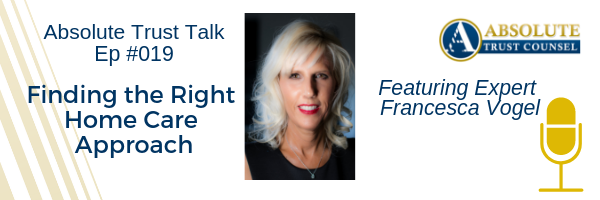When a loved one is diagnosed with dementia, it is important that they receive the appropriate care at every stage of the disease.
In the early stages of dementia, individuals are often capable of living independently with minimal supervision. As the disease progresses, they may require the assistance of family or an aide, or enrollment in adult day care while family members are at work. Eventually, living independently may no longer be an option. That’s when it’s time to consider a facility devoted to memory care.

Memory care keeps dementia patients connected with their past. In older adults, loss of short-term memory occurs earlier than loss of long-term memory. Memory care programs utilize links to the past to keep the brain active, lessening the rate of decline. Such facilities are also cognizant of the deficits caused by dementia and actively address them through programming and facility enhancements.
A memory care facility should be selected with careful deliberation. Some tips:
- Assess the patient’s needs. What level of care is required? What other factors are important to the individual patient or the family?
- Determine how care will be financed. Will it be paid for by insurance or privately funded? What government resources are available?
- Develop a budget for care. What is affordable?
- Create a list of prospective facilities. The facilities selected must meet patient needs as well as the budget.
- Make several visits to a prospective facility, varying the time and day. Staff rotates. It is important to determine whether care is maintained at a consistent level at all times. For example, night shifts might be understaffed simply because patients are sleeping and typically require less care. However, less staff can also result in longer wait times when assistance is required, often with negative results.
- Determine the composition of staff. How many supervisors, nurses, CNAs, and aides are scheduled for each shift? What is the ratio of professional to support staff? Of staff to patients? Experts say there should be one staff member for every five patients at all times. In addition, an appropriate mix of professional and non-professional staff should always be available.
- Note the frequency of interaction between staff and residents. Are staff members readily available? Do they appear to respond quickly to requests for assistance? Are they attentive, compassionate, and friendly? Are there times when staff disappears, leaving patients unattended?
- Taste the food. Several times. Institutional food is notoriously bad. Some dementia patients simply stop eating when the food is unpalatable. A quality facility will not only employ dieticians to oversee dietary needs, it will also employ trained chefs to ensure food is well-prepared and tasty. In addition, meal times are usually when patients are joined by family. Bad food does not encourage family interaction. It discourages it.
- Is the facility clean and well-maintained? Does it smell fresh? Do residents appear happy and well-cared for? Are rooms clean and orderly? Are the residents dressed in clean clothing? Are residents encouraged to leave their rooms and socialize with others? Is activity ongoing? Are the grounds well-maintained?
- Speak to the family members of current residents. Do they believe the patient is well-cared for? Are they comfortable leaving the patient in the care of staff members? Have there been any problems with care? Were those problems addressed?
- Review licenses and accreditations. Check with state licensing boards to review any complaints. Contact accreditation organizations to verify ratings. Note the frequency of complaints and the reasons for them.
- Run a search on the Internet. There are many reasons why a facility might be featured in the news. For example, they may receive publicity for innovative activities or notable advancements in care. Or they may be cited for issues with the quality of care, patient safety, or substandard living conditions. Don’t stop at news stories, however. Also examine advertising. What attributes does the facility promote to prospective patients? Are those the same attributes that are important to you?
- Talk to your neighbors. Does the facility have a positive reputation? Have they heard any complaints? Do they know anyone who has resided there?
- Carefully review contracts for residency. Does the facility charge a flat monthly fee, charge for each service, or require a significant down payment? Does pricing change as care needs increase? What expenses will not be covered by insurance or government programs? Will the patient or family member receive a detailed monthly accounting of expenses?
Experts say the best memory care facilities provide a well-maintained, homelike setting with intimate dining spaces, large bedrooms, and many rooms for activities. There should be ample access to natural light, including large windows and a secure outdoor area. The quality of care should be evident—from staff interaction to tasty, nutritious meals. There should also be a wide variety of activities and social events. In addition, a facility should be located close to family to ensure that family interactions continue.
Dementia patients are vulnerable and may not be capable of reporting deficiencies or mistreatment at the place where they reside. That’s why it’s important to carefully evaluate facilities before a loved one moves in. Experts say facilities that permit dementia patients to age in place are best. Each time a dementia patient is moved to a new location, for whatever reason, there is a loss of cognition. That inhibits awareness and understanding, and contributes to their confusion.
Dementia patients have a right to a high standard of care, as well as safe and secure housing. A comprehensive evaluation of a prospective memory care facility will contribute to their continued well-being.
[Ad] Calling all neighbors in the Walnut Creek area and beyond! At Absolute Trust Counsel, we understand how unique the needs of your family can be. When it comes to planning for your family’s legacy, there is no one-size-fits-all approach. Schedule a free discovery call,and let’s talk about how we can help build the right plan for your family’s circumstances. Or, if you have a question about the content in this blog, please feel free to get in touch with us by calling 925.943.2740 or sending an email to Info@AbsoluteTrustCounsel.com.
If you’re someone who needs to include Medi-Cal planning in your estate plan, we can help. For more information on what Medi-Cal planning should look like, visit https://absolutetrustcounsel.com/practice-areas/medi-cal-planning/ for even more resources to help get you started.


